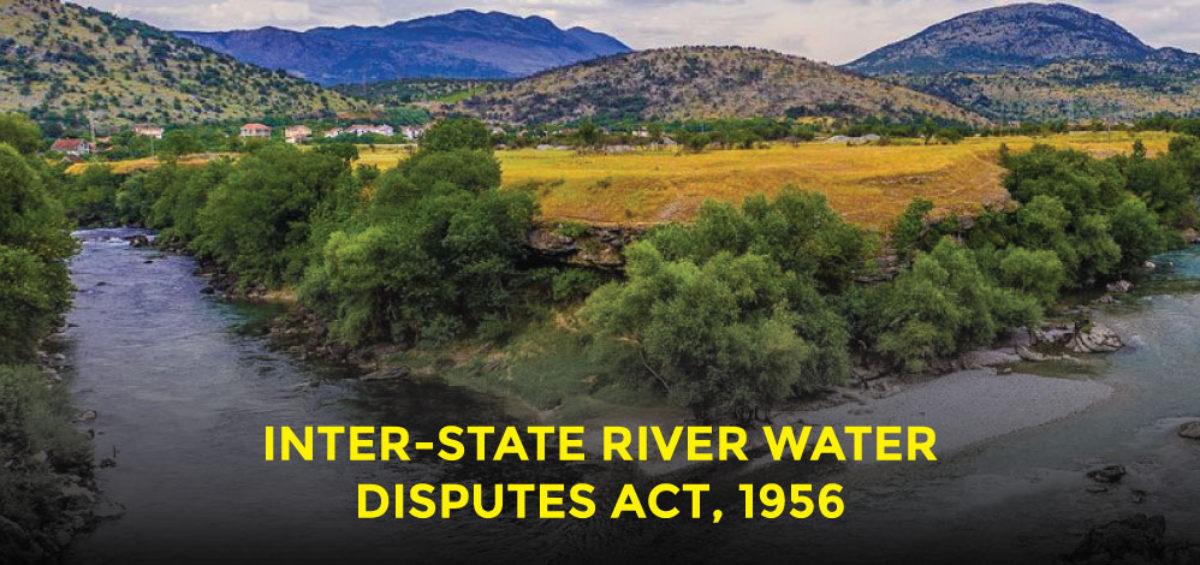Inter-state River Water Disputes Act, 1956
The Karnataka Chief Minister has stated that it is time to examine the Inter-State River Water Disputes Act, as it is causing more disputes than it is resolving.
The chief minister’s declaration comes at a time when Karnataka has been locked in a never-ending battle with Tamil Nadu, Maharashtra, Goa, and Andhra Pradesh over water conflicts involving the Cauvery, Mahadayi, and Krishna rivers.
What are Inter-state River Water Disputes
As per Article 262 of the Indian Constitution, the Parliament has enacted the following:
- Inter-State Water Disputes Act, 1956: Under this act, if a state government or governments approach the Centre for the constitution of a tribunal, the government may form a tribunal after trying to resolve the dispute through consultations.
- The River Board Act, 1956: The River Board Act of 1956 gave the Government of India the authority to create boards for interstate rivers and river valleys in conjunction with state governments. There is yet to be established a river board.
Issues surrounding the Inter-state River Water Disputes Act, 1956
- Extreme delays in dispute resolution: An example of this fact is following: The Cauvery Water Disputes Tribunal, constituted in 1990, gave its final award in 2007.
- The tribunal’s makeup is not multidisciplinary, consisting solely of members of the court.
- The institutional architecture and norms that define these proceedings are opaque, and conformity is ensured.
- Though the award is final and beyond the jurisdiction of the courts, either State can file a Special Leave Petition with the Supreme Court under Article 136 (tying the matter to the infringement of Article 21) under Article 32. (Right to Life).
- The Central Water Commission (CWC) is in charge of surface water, while the Central Ground Water Board of India is in charge of ground water (CGWB). Both organisations operate independently, and there is no single forum for discussing water management with state governments.
What is the need of the hour?
- At a single stage, the several tiers of resolving interstate water conflicts are eliminated.
- The solution should be based on the maximal utility of a river basin’s capacity and the use of technology, with all political factors discarded.
READ MORE: Daily Prelims Booster
READ MORE: Daily News Analysis




